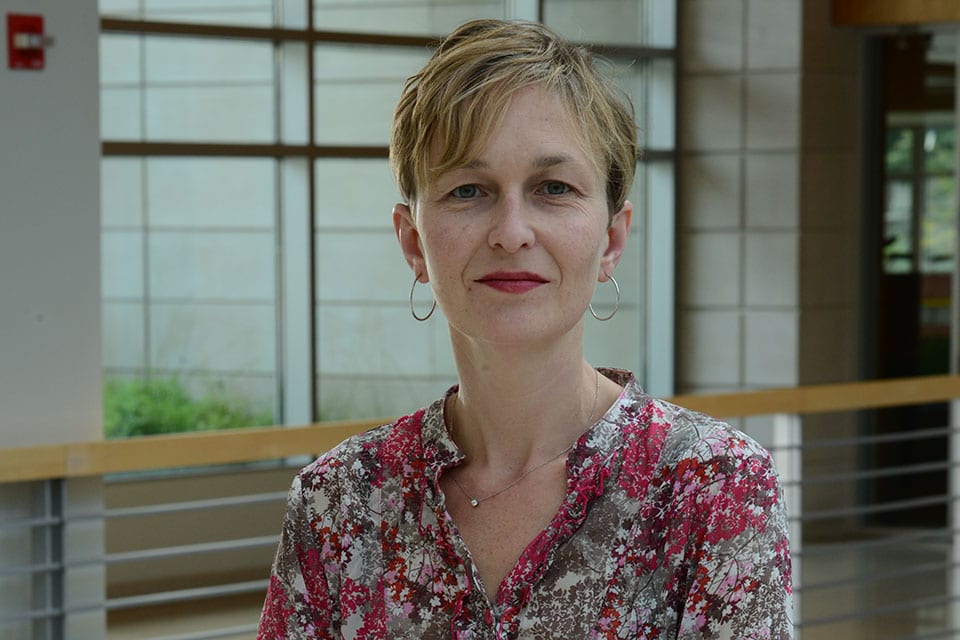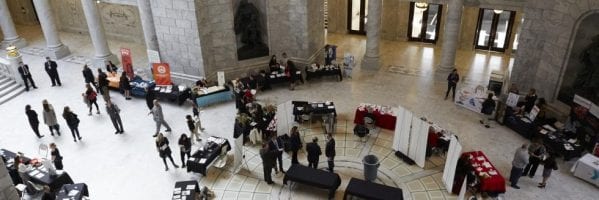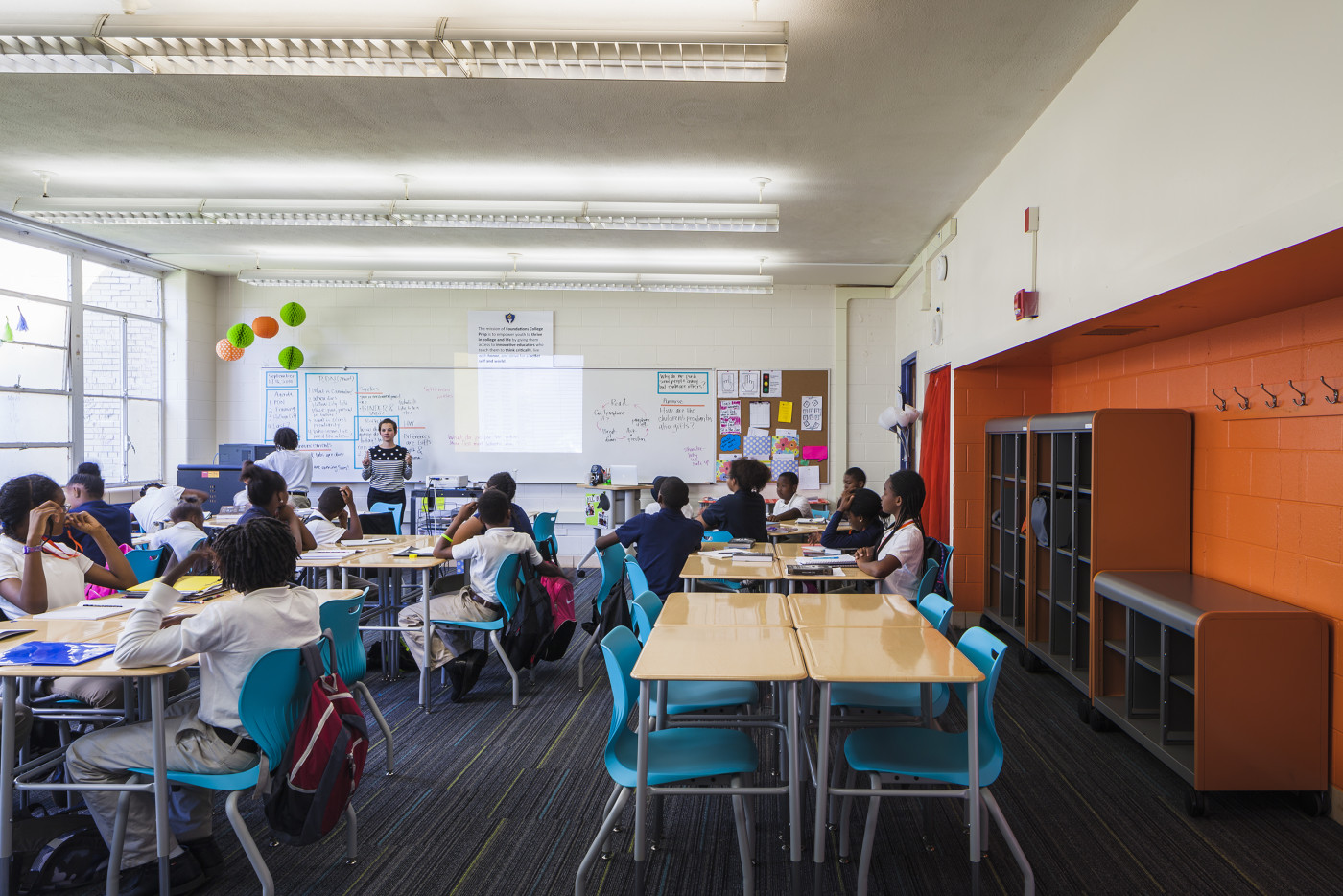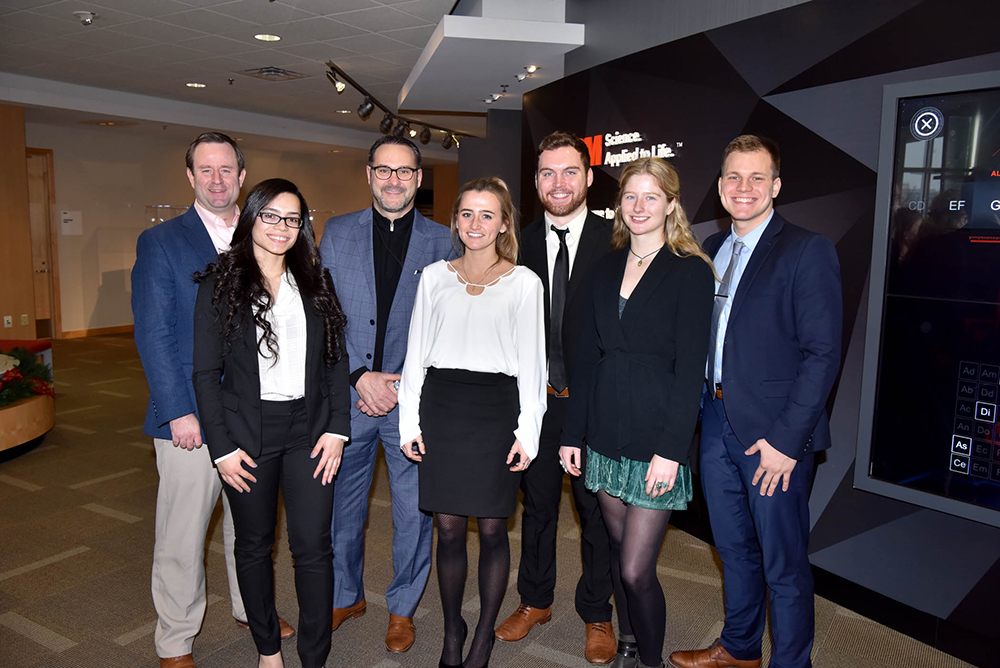The Path to Better Negotiations May Start at the Dinner Table – Chicago News

Let’s explore the most interesting stories to emerge from Chicago business schools this week.
Which Gold Medalists Do We Tweet About? Liberals and Conservatives Differ – Kellogg Insight
As cultural awareness about the often unrecognized contributions of historically disadvantaged groups continues to grow, Northwestern University Kellogg School of Management professor Nour Kteily hypothesizes that the more people prioritize social equality, the more they might actively promote the accomplishments of women and people of color.
Kteily notes, “Political liberals have a natural affinity for targets that belong to groups that they see as socially disadvantaged, and a motivation to raise these groups’ position in society. Given this, we reasoned that they would want to emphasize the good things that those who belong to groups that are otherwise overlooked are able to do.”
His study analyzes which individuals are primed to consider how underrepresented groups are overlooked and observed for their likelihood to promote a black woman faculty member according to their political ideology.
“Both liberals and conservatives shift up when they read that disadvantaged minorities’ accomplishments tend to be overlooked, but the ideological difference that exists at baseline remains,” Kteily notes.
You can read more about the study here.
Gies Creates Role of Chief Disruption Officer – Gies College of Business News
The University of Illinois Gies College of Business recently announced its newest leadership position: Associate Dean for Innovation & Chief Disruption Officer. The role will assist the business school to further innovative educational practices.
Robert Brunner, a longtime professor at the university, will ensure Gies remains up to date with current trends in technology and embraces future opportunities preemptively.

University of Illinois professor Robert Brunner has been officially named the new Associate Dean for Innovation & Chief Disruption Officer at the Gies College of Business.
Jeffrey R. Brown, Josef and Margot Lakonishok Professor of Business and Dean, extolled Brunner’s qualifications:
“Professor Brunner is an outstanding thought leader with a universal view of technological innovations. [His] extensive experience and passion make him the perfect fit as our very first Associate Dean for Innovation and Chief Disruption Officer. I’m delighted that he will be taking a more prominent leadership role within our College.”
Brunner will be tasked with identifying future challenges in business and creating unique solutions. Brunner remarks, “In today’s world, you’re either part of the disruption, or you risk being disrupted. Gies College of Business is taking a proactive approach like no one else in the country. We are not business as usual and our students will benefit greatly because of it.”
You can read more about Brunner and the new position at Gies here.
Trying to Get People to Agree? Skip the French Restaurant and Go Out for Chinese Food – Chicago Booth News
Here’s a new negotiating tactic: enjoy a family-style meal with your counterpart before making your opening bid. When people in a business negotiation share not just a meal but a plate, they collaborate better and reach deals faster, according to new research from the University of Chicago Booth School of Business.
In the study entitled “Shared Plates, Shared Minds: Consuming from a Shared Plate Promotes Cooperation,” professor Ayelet Fishbach and Cornell‘s Kaitlin Woolley examine how the way a meal is served and consumed boosts cooperation. These results show that sharing meals not only helps people collaborate better, but also reach agreements faster.
Woolley and Fishbach conducted the experiment with friends and strangers. The results found that friends arrived at a negotiation agreement faster than strangers did. However, sharing plates had a significant effect for both groups.
“The degree to which a person felt she was collaborating with her partner while eating—sharing food rather than competing for that last bite—predicted her feelings of collaboration during the negotiation phase.”
Fishbach remarks, “Basically, every meal that you’re eating alone is a missed opportunity to connect to someone. And every meal that involves food sharing fully utilizes the opportunity to create that social bond.”
You can read more about the research here.
Northwestern’s Advice on Real Deal Work Inclusivity, and More – Chicago News

Let’s explore some of the most interesting stories that have emerged from Chicago business schools this week.
How to Make Inclusivity More Than Just An Office Buzzword – Kellogg Insight
Many organizations claim to value diversity, but even successful leaders at diverse organizations may fall short when it comes to inclusion.
“Inclusion is about welcoming, developing, and advancing a diverse mix of individuals,” explains Ellen Taaffe, an Assistant Professor of Leadership and Director of Women’s Leadership Programs at the the Northwestern University Kellogg School of Management.
“It’s about making all people feel valued, including changing practices that might unfairly benefit any one group, and making sure that everyone feels they have the same opportunity to advance and make an impact. Creating that environment is where the real challenge lies.”
Taaffe recommends making the business case for inclusion. “The message is clear: this will help all of us because it will open us up to new ideas and help us think differently. You might not need this with every group, but it’s good to have proof points just in case, to offset the concerns people might have.”
“As disruption occurs across industries, new ideas are needed from more diverse perspectives to be more innovative and competitive in our rapidly changing world.”
You can read the full article here.
Will More Companies Follow MasterCard’s Lead? – Gies School of Business News
MasterCard announced this past week that it will drop the name from its logo “in select contexts.”
The credit card company hopes customers will recognize the brand solely based on its iconic interlocking red and yellow circles. U. Illinois Gies School of Business Professor of Business Administration, Yuqian Xu, co-authored a paper titled “The Impact of Mobile Payment Channel on Consumer Consumption: Evidence from Alipay,” which highlights the growing popularity of digital payment methods that may lead to fewer credit card transactions.
“By taking the word ‘card’ off their logo, we’re seeing Mastercard embrace this trend of consumers moving toward more digital payment methods. I think this is a smart move letting the public know they’re adjusting with technology. Eventually we’re going to see credit cards having a progressively smaller market share as digital payment methods grow.”
Xu adds, “Credit card companies need to view the move toward digital payments as an opportunity for them, instead of as competition. Traditional credit card companies have a large market share already, so if they increase their digital payment capabilities, they’ll be able to keep their original customers and acquire new ones as well.”
You can read more from the recent Gies interview here.
Chicago Booth’s Marianne Bertrand Wins New Swedish Prize in Economics and Management – Chicago Booth News
The University of Chicago Booth School of Business has yet another accolade added to its ranks.
Marianne Bertrand, the Chris P. Dialynas Distinguished Service Professor of Economics, is the newest winner of the Jan Söderberg Family Prize in Economics and Management. This prize awards a leading international scholar under the age of 50 who has made a discovery or contribution within the fields of economics and management. Bertrand was awarded the prize for her scholarship in issues that includes “inequality, discrimination, and sexism,” according to the school.

Marianne Bertrand, the Chris P. Dialynas Distinguished Service Professor of Economics, is the newest winner of the Jan Söderberg Family Prize in Economics and Management. / Photo via chicagobooth.edu
“I find it most interesting to push the boundaries of economics,” Bertrand says. “I am convinced that satisfactory answers to many of the questions that interest me cannot be provided by solely looking at market incentives or restricting the human decision-making process to strict rationality assumptions.”
She explains, “For example, it is difficult to fully understand the sources of the gender wage gap or the sources of racial prejudice without tapping into the tools of sociology and psychology. Similarly, it is difficult to fully explore the sources and consequences of income inequality without paying attention to the role of political institutions, power and influence.”
Fredrik Andersson, Dean at Lund University School of Economics and Management and chair of the prize committee, praises Bertrand:
“Marianne Bertrand is one of the world’s most prominent applied micro-economists. We see her work as an inspiration for researchers in both economics and management. Her focus on issues such as inequality and discrimination also align well with our core research agenda.”
You can read more about the award and Professor Bertrand here.
Booth Research Reveals Dominance of Snap Judgement, and More – Chicago News

Let’s explore some of the most interesting stories that have emerged from Chicago business schools this week amidst the Polar Vortex (stay warm, everyone).
Why People Make up Their Minds Sooner Than They Realize – Chicago Booth News
More information does not necessarily lead to more informed decisions. New research from the University of Chicago Booth School of Business finds that people assume they can and will use more information in making decisions, despite the contrary evidence. Often, people make snap judgement without awareness and most collected information goes unused.
Ed O’Brien, Chicago Booth Associate Professor and co-author of “People Use Less Information Than They Think to Make Up Their Minds,” asserts, “In our studies, participants thought they would withhold judgment and await a lot of evidence before making up their minds but in reality, they cast judgment right when the evidence came in.”
Researchers note that the data suggests a gap between information seekers and information providers.
“For example, people who go online to research a topic or take part in a debate may only access a small fraction of what is available before making a decision while providers of that information may assume the seekers are taking in all the information and hear them ‘loud and clear.'”
You can read more about Ed O’Brien’s research here.
Why We Can’t All Get Away with Wearing Designer Clothes – Kellogg Insight
While luxury brands are a surefire way to indicate status, a new series of experiments reveal the surprising downsides of luxury consumption.
According to a new paper by Northwestern University Kellogg School of Management Professor of Marketing Derek Rucker and Ph.D. candidate Christopher Cannon, luxury consumers may find themselves at a disadvantage in the hiring process. This instance is even more particular when the job involves interpersonal warmth. Rucker and Cannon’s research explores how consumers who wear luxury goods are viewed more negatively and perceived as “cold.”
Cannon notes, “We don’t find evidence in this work that the effects are driven by envy. We find evidence that luxury consumption can lead people to infer certain motives. Specifically, when people assume that someone has donned luxury goods in order to show off, this can lead them to see that person as less warm.”

Despite the obvious social appeal, Cannon and Rucker’s new research suggests that luxury brands, like Gucci, tend to create an impression that appears interpersonal.
Cannon and Rucker point out the importance of evaluating the situation before donning your Gucci. “We’ve shown situations exist where luxury consumption produces positive outcomes, such as when filling the corporate publicist role in the experiment. Rather than luxury always being good or always being bad, it depends on whether status or warmth is more important.”
You can read more about the luxury research here.
Howe Teaches Students How to be Professional Leaders – Gies School of Business News
Alan Howe (BADM ’82), a professional board director, has served across multiple industries—including enterprise software, wireless, telecom, composite materials, and IT services—specializing in “turnaround” situations. He recently returned to the University of Illinois Gies College of Business to share his expertise with the next generation of business leaders.
“I tell students that what they think they’re going to be doing in the next three years is probably radically different than what they’ll be doing in 10 to 15 years, so get ready for change. Be adaptable because you never know where the next opportunity may come from,” Howe asserts in a recent profile.
In the interview, Howe further explains what makes a great business leader:
“The best characteristic is humility. You can’t ‘big dog’ in a corporate setting or talk about how smart you are. Lead with humility. Also listen and learn from people around you.”
You can read more from the Howe interview here.
Tackling Unemployment Insurance with Google, and More – Chicago News

Let’s explore some of the most interesting stories that have emerged from Chicago business schools this week.
What Google Is Teaching Economists About Unemployment Insurance – Kellogg Insight
For decades, policymakers have debated whether unemployment insurance provides a critical safety net during tough times or whether it extends joblessness by reducing the incentive to find a new job.
Northwestern University Kellogg School of Management Associate Professor of Finance Scott R. Baker and BU Questrom’s Andrey Fradkin used data from Google Trends to shed some light on this question by providing real-time access to millions of searches that can be aggregated across geographies.
“We realized we could look at people’s job-search habits in a way that traditional government datasets had a hard time doing,” Baker says.
Baker says the value of the Google Job Search Index extends well beyond job-search tracking. The GJSI offers new ways to forecast consumer sentiment and economic uncertainty by tracking search terms such as “recession” and “bankruptcy.”
“This approach can be really useful for policymakers because it can be much more local and granular,” Baker notes, “and they can access it without a six-month or year-long lag.”
You can learn more about the duo unemployment insurance research here.
Pioneers in Education – Chicago Booth News
Six Booth School of Business graduates hope to apply their business backgrounds and bold ideas to a variety of roles within the education sector, including nonprofit management, education consulting, investing, and education technology.
Booth MBA alum Micki O’Neil, founder of Foundations College Prep, a public charter school in Chicago’s Roseland community on the city’s south side, explains how Booth provided her with the necessary skills to handle the rigors of running a charter school. “Starting a school is a pretty all-encompassing thing. It takes leadership and entrepreneurial skills, as well as operations, marketing, and financial know-how,” she says.

“Starting a school is a pretty all-encompassing thing. It takes leadership and entrepreneurial skills, as well as operations, marketing, and financial know-how,” O’Neil says.
As the school matures into its fifth year, O’Neil finds herself reflecting on her Booth coursework as she tackles ongoing challenges, noting “when we think about designing our school and the way we are structuring our time, it is grounded in strong economic theory.”
You can read more about O’Neil’s journey here.
Gies Business Cooking Up Food Science Entrepreneurs – Gies College of Business News
The University of Illinois Gies College of Business recently partnered with the College of ACES to develop a unique collaboration in which students take a deep dive into the business strategies of food science.
“This course collaboration was a perfect opportunity to infuse entrepreneurship education with an emphasis on social purpose into an effective food product development capstone,” says Valeri Werpetinski, Associate Director for Entrepreneurial Education with the Origin Ventures Academy for Entrepreneurial Leadership at Gies College of Business.
Charlie Stahursky, a senior food science major, was paired with Patryk Swietek, a senior information systems major and mentor from Gies.
“We were coming more from a science and nutrition perspective, but Patryk forced us to think about our selling points and marketability. We had to go back to the drawing board a bit to find trendy ingredients and discover what people really wanted in their food. I think that set us on track to developing a really good product.”
You can read more about the new course collaboration at Gies here.
Handling the Customer Employee Relationship, According to Northwestern – Chicago News

Let’s explore some of the most interesting stories that have emerged from Chicago business schools this week.
Customers Can Be Jerks. Here’s Why Some Employees Retaliate – Kellogg Insight
Northwestern University Kellogg School of Management Clinical Professor of Management and Organizations Cynthia Wang co-authored new research that seeks to understand the broader implications of employee reactions to unpleasant customers. Do they respond in turn with hostility and try to sabotage the customer or do they turn the other cheek?
Among the extensive psychological research in this area, Wang and her co-authors were drawn to a model known as the social intuitionist model, which argues that moral-decision making is the result of snap judgement and heightened emotion.
“In that heightened emotional state,” Wang explains, “we begin to view problem customers as not worthy of fair treatment—a phenomenon psychologists call ‘devaluation of targets’—which leads employees to see those customers as subhuman.” The reverse, where customers also treat employees poorly, also rang true.
Wang adds:
“These decisions are very quick and implicit. We don’t necessarily notice them going on.”
You can read more about the research here.
Brexit Clouded by Uncertainty, Says Gies Professor – Gies School of Business News
United Kingdom Prime Minister Theresa May canceled the House of Commons Brexit vote that was scheduled for December 11, putting a Brexit solution on hold for now, leaving the future of UK’s relationship with the European Union up in the air.
The UK is still scheduled to leave the EU on March 29, 2019 and parliament needs to strike a deal to make the departure as smooth as possible. Major challenges include finding a solution for the border between Northern Ireland and the Republic of Ireland, along with dealing with the consequences of leaving the European Union for businesses and jobs in both the United States and the UK.
Candace Martinez, University of Illinois Gies College of Business Clinical Assistant Professor of Business Administration, remarks, “If the UK cannot arrive at a solution to the Irish border quandary, a ‘backstop’ approach is a last resort,” noting that Northern Ireland voted to remain in the EU on the June 2016 referendum.
Martinez adds, “Uncertainties are everywhere. This is uncharted waters, to be sure.”
You can read more from the interview with Martinez here.
Sales Class Challenges Students to Provide Creative Solutions for Nonprofits – DePaul Business News & Events
As part of the Marketing 386: Social Impact Sales course at the DePaul University Driehaus College of Business Center for Sales Leadership, students are partnered with a local nonprofit, providing marketing and sales advice. “After working in teams, students present their business plans to the nonprofit toward the end of the quarter. A winning team is then selected by Drehmer and the non-profit to present their creative solutions in front of executives at 3M in St. Paul, Minn.,” according to DePaul University’s Jaclyn Lansbery.

(Left to right) Center for Sales Leadership Executive-in-Residence Charlie Drehmer; Isaly Varela; Mark McLellan, national channel operations manager at 3M; Dominique DiVito; Gavin Hultgren; Ava Kilborn and Mike Nowak / Photo via business.depaul.edu
Charles Drehmer (BS `03, MBA `04, MA `16, Ph.D. `17), who teaches the course, says: “The Social Impact Sales class is extremely rewarding for both me and the students in that we truly make difference in people’s lives. The class is as real as it gets, where students meet with the client to discover their needs and wants, design and execute a market research study and then present their recommendations to the client. Not only does the project provide students a hands-on real-world experience, they also get to make a positive impact on underserved communities.”
Last fall, students worked with Chicago Community ToolBank, providing a marketing and sales strategy. “The project focused on a new program, Corporate Days of Service, which offers private companies a unique team-bonding experience where they use the ToolBank’s tools and facilities to build furniture that is donated to a nonprofit organization of their choice. Students also worked together to build bookshelves that were donated so they better understood what new service would entail,” Lansbery writes.
Isaly Varela, an undergraduate business student in the program, adds, “The class has given us the skills to think critically about marketing and sales along with being comfortable with ourselves.
To read more about the program, head on over to the official DePaul Univesity website.
From Disney to Starbucks, and More – Chicago News

Let’s explore some of the most interesting stories that have emerged from Chicago business schools this week.
Don’t Let Complacency Derail Your Career – Kellogg Insights
Carter Cast, the Northwestern Kellogg Clinical Professor of Innovation and Entrepreneurship and author of “The Right (and Wrong) Stuff: How Brilliant Careers Are Made — and Unmade,” writes about how “Version 1.0” employees who “lack curiosity and avoid taking risks” may find themselves professionally derailed.
“You have to find ways to stay fresh, especially in this day and age with the massive rate of change in technology. Disruption is everywhere.”
-
- Following a promotion, understand your supervisor’s expectations. “Ask the boss: ‘With this new job, what will I have done in two years to make you think that this was a good move to promote me? What are the key success metrics I should be aiming for?’”
- Increase your learning agility, or how quickly you develop and apply new skills by honing a discovery mindset. “[Force] yourself to acquire new skills that could help you down the road. If you work in sales, for example, you might take time to understand how the marketing team leverages its social marketing assets.”
- Identify your particular “area of innate resistance,” which Cast believes can stifle career growth if not addressed. He advises to spend more time being open to what you could learn than spending time and energy on what you already know.
- Cast advises Version 1.0 types to “adopt the ‘lean thinking’ mentality in order to refresh their thinking and test new ideas.”
- Networks that individuals can “rely on for information and assistance” are critical when jobs are constantly in flux. According to the article, “A strong, diverse network can help you bounce back after a challenge or shake-up.”
You can read more from the article here.
From Disney to Starbucks, Shewalter Doesn’t Shy Away From Big Challenges – Gies College of Business News
The U. Illinois Gies College of Business recently profiled Erik Shewalter (BADM ’14) who offers insights from his transition from Disney’s DTC streaming service to product management role at the Starbucks Rewards Innovation Team where he oversees strategy and innovation.
Shewalter spoke at length about a defining moment from his “once-in-a-lifetime” opportunity at the Disney-branded streaming service where he realized how much he loved the work he was doing.
“One of the defining moments of my career will forever be one of my first meetings with Kevin Mayer (Chairman of Direct-to-Consumer and International). I came to the meeting prepared, and because I was so immersed in the data, I was able to share specific insights that influenced decisions like the choice to include Star Wars and Marvel content in the streaming service.”
One major reason Shewalter left Disney for Starbucks was to work alongside his fiancée Naomi Liu (FIN, BADM ’15) who works in food innovation.
“There are so many little perks that materialize every day, such as sharing a commute, or even sharing our networks (which is critical for succeeding at Starbucks). Also, we love to surprise each other by bringing the other person drinks and snacks throughout the day.”
Check out the entire Gies College of Business News interview here.
Rogers Park and Edgewater Businesses Becoming More Sustainable with Loyola’s Help – Quinlan School of Business
With the support of Loyola University’s Quinlan School of Business Experiential Learning Communities in Solidarity program, professor Nancy Landrum orchestrated partnerships with Smack Dab Chicago and Edge of Sweetness Bakery for her Sustainable Business Management class.
Teams from Landrum’s class “performed waste, water, and simple energy audits and completed greenhouse gas inventories” and then organized “cash mob” events to attract customers to the businesses.
According to the article, “Edge of Sweetness saw a 216 [percent] increase in sales during the cash mob, and Smack Dab Chicago saw a 51 [percent] increase.”
Edge of Sweetness co-owner Kate Merrill (BSN ’96) writes, “I was delighted and surprised by how thorough they were during the initial evaluation. They were also very proactive about what they wanted to do with the projects, which was very nice to see.”
Smack Dab Chicago co-founder Axel Erkenswick adds, “I was interested to see how in-depth the students went into their audits, including going through our waste. Energy conservation is important to me, because it shows customers that we are more than a McDonald’s. We are community driven and put our efforts into helping the environment.”
Read more about the Quinlan program here.
